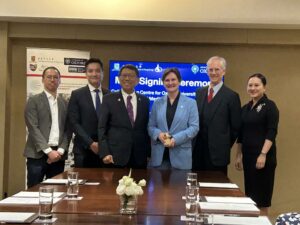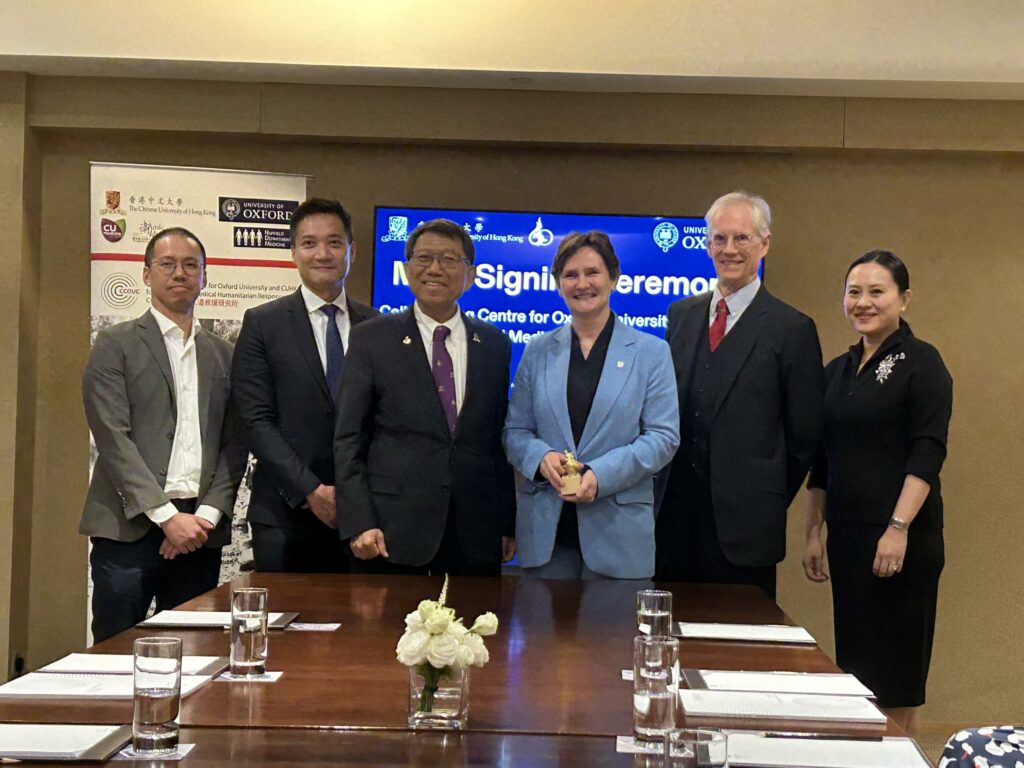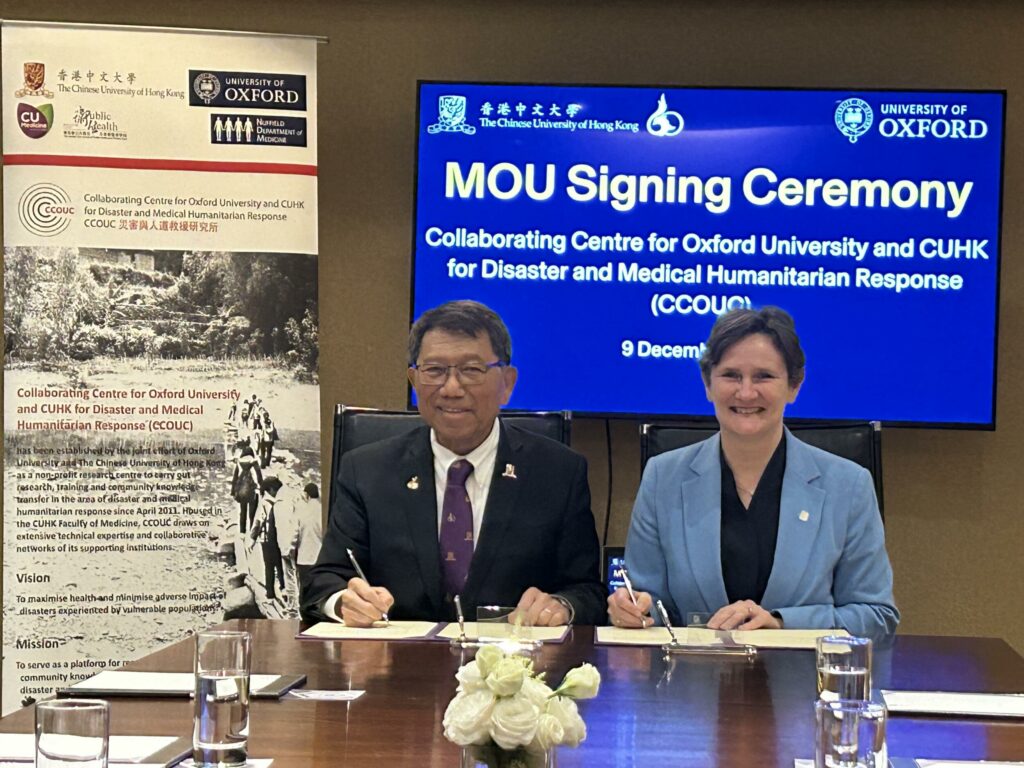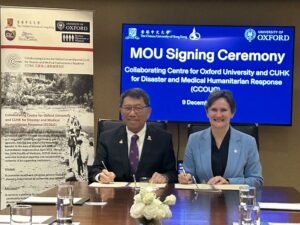CUHK
News Centre
CUHK and University of Oxford renew agreement to strengthen research, policy dialogue and training collaboration for disaster and medical humanitarian response, climate change and health
The Chinese University of Hong Kong (CUHK) and the University of Oxford have recently reaffirmed their commitment to disaster and medical humanitarian response, as well as climate change and health, by renewing their cooperation in the Collaborating Centre for Oxford University and CUHK for Disaster and Medical Humanitarian Response (CCOUC) for another three years, after 12 years of fruitful collaboration. Officiating at the agreement signing ceremony were Professor Irene Tracey, Vice-Chancellor of the University of Oxford, and Professor Rocky S. Tuan, CUHK’s Vice-Chancellor and President, at the Hyatt Regency Hotel Shatin, adjacent to the CUHK campus. It is also one of the celebratory activities for CUHK’s 60th Anniversary.
Professor Emily Y.Y. Chan, Founding Director and Co-Director of CCOUC, briefly introduced the work and achievements of the Centre to the two Vice-Chancellors, focusing particularly on CCOUC’s climate change and health research and policy discussions. Professor Tracey said she was delighted by the continuing collaboration between CUHK and the University of Oxford on disaster and medical humanitarian response, as well as climate change and health, commenting that the health risks related to climate change are a wake-up call for climate action. Professor Tuan echoed that a global solution was required for this global issue, complimenting CCOUC’s achievements in this crucial area, which exemplify Hong Kong’s role in connecting China and the rest of the world.
The recent disruption and loss caused this summer by Super Typhoon Saola and the most severe black rainstorm ever in Hong Kong once again brutally reminded people of the importance of enhancing disaster preparedness capacity and response at the local, national and international levels via research-informed and evidence-based policy advocacy, training and drills. This threat is becoming more frequent and imminent as a result of climate change.
With the renewal of this exemplary international cooperation between CUHK and Oxford University, CCOUC will keep moving forward in its humanitarian journey with energy, kindness and hope. In an exciting start, it is the Asian partner in the international (Africa, Asia, Europe and South America) research team led by the University of Oxford and funded by the first round of the Wellcome Trust’s new Discovery Award scheme to conduct an eight-year, £6.5 million (HK$60 million) multidisciplinary international global health research project, “After the end: lived experiences and aftermaths of diseases, disasters, and drugs in global health”. It will continue to consolidate its status as an international centre of expertise in disaster and medical humanitarian response research, education and policy consultation; help build capacity among researchers and practitioners in the Asia-Pacific region to conduct research and provide local and international medical humanitarian assistance; establish new collaborations with academic institutions in other parts of the world, notably Africa and South America; strengthen our collaboration with NGO partners to provide research and training opportunities to scholars and students in Southeast Asia and Africa; and elevate Hong Kong as a leader in global disaster risk reduction policy issues, particularly risks arising from climate- and weather-related extreme events, and community resilience, by developing an international platform for consultation that can facilitate discussion among people from various backgrounds.

From left: Professor Kevin Hung, Co-Director, CCOUC; Professor Samuel Wong, Director, SPHPC and Associate Dean, Faculty of Medicine, CUHK; Professor Rocky S. Tuan, Vice-Chancellor and President, CUHK; Professor Irene Tracey, Vice-Chancellor, University of Oxford; Professor Nick Rawlins, Pro-Vice-Chancellor, CUHK; and Professor Emily Y.Y. Chan, Co-Director, CCOUC






